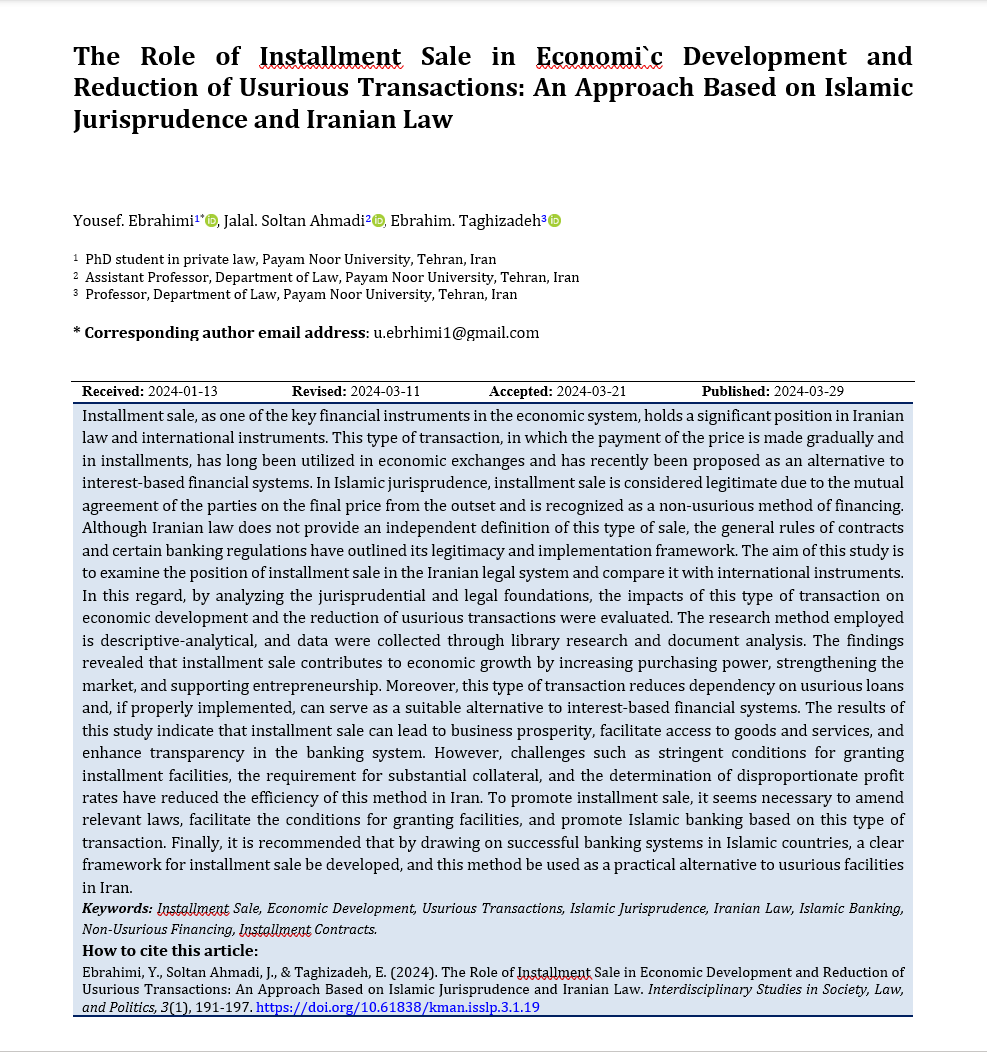The Role of Installment Sale in Economic Development and Reduction of Usurious Transactions: An Approach Based on Islamic Jurisprudence and Iranian Law
Keywords:
Installment Sale, Economic Development , Usurious Transactions , Islamic Jurisprudence , Iranian Law , Islamic Banking , Non, Usurious Financing , Installment Contracts.Abstract
Installment sale, as one of the key financial instruments in the economic system, holds a significant position in Iranian law and international instruments. This type of transaction, in which the payment of the price is made gradually and in installments, has long been utilized in economic exchanges and has recently been proposed as an alternative to interest-based financial systems. In Islamic jurisprudence, installment sale is considered legitimate due to the mutual agreement of the parties on the final price from the outset and is recognized as a non-usurious method of financing. Although Iranian law does not provide an independent definition of this type of sale, the general rules of contracts and certain banking regulations have outlined its legitimacy and implementation framework. The aim of this study is to examine the position of installment sale in the Iranian legal system and compare it with international instruments. In this regard, by analyzing the jurisprudential and legal foundations, the impacts of this type of transaction on economic development and the reduction of usurious transactions were evaluated. The research method employed is descriptive-analytical, and data were collected through library research and document analysis. The findings revealed that installment sale contributes to economic growth by increasing purchasing power, strengthening the market, and supporting entrepreneurship. Moreover, this type of transaction reduces dependency on usurious loans and, if properly implemented, can serve as a suitable alternative to interest-based financial systems. The results of this study indicate that installment sale can lead to business prosperity, facilitate access to goods and services, and enhance transparency in the banking system. However, challenges such as stringent conditions for granting installment facilities, the requirement for substantial collateral, and the determination of disproportionate profit rates have reduced the efficiency of this method in Iran. To promote installment sale, it seems necessary to amend relevant laws, facilitate the conditions for granting facilities, and promote Islamic banking based on this type of transaction. Finally, it is recommended that by drawing on successful banking systems in Islamic countries, a clear framework for installment sale be developed, and this method be used as a practical alternative to usurious facilities in Iran.
Downloads






